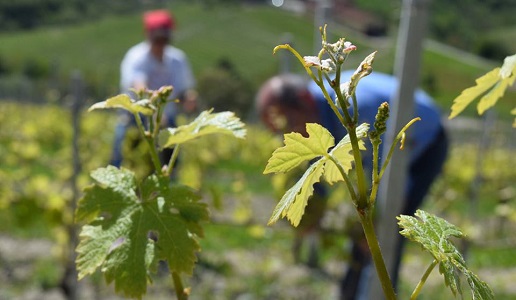Agricultural wines

When producing a wine is an agricultural act, one which respects the environment and those who work the land, we can define this wine an agricultural wine, paying no attention to fads or ideologies.
I have always been impressed by the position of Carlo Petrini, the founder and lider maximo of Slow Food, who defined correct food production as “an agricultural act”. In other words, the producting food, vegetables and fruit, as well as cheese, pasta and meat, along with the practice of fishing, must be done in respect of the principles of eco-sustainability and those that can be summed up by the slogan “good, clean and right”, which has always been that of the Slow Food movement. And by doing this one carries out an “agricultural act”.
In regard to the world of wine, also to overcome the divisions that have emerged in recent years and the created different schools of thought, I am convinced that it would be a good idea to takes this aspect into consideration. This would allow us to arrive at a definition of “agricultural wines”, which would be those that, aside from specific methods, precise protocols, whether they have to do with winegrowing or winemaking, see the producer with the responsibility of deciding whether or not to work in respect of the environment and to be fully informed on the winemaking and winegrowing methods used.
What I am saying is that it is not obligatory, in my opinion, to adhere to the biodynamic theories to respect the environment and the health of consumers, even if there is nothing wrong with applying these theories. It is not necessary to have this or that certification to practice eco-sustainable winemaking, even if it is always better to have oversight, if possible by third or public parties.
There are hundreds, if not thousands of examples of winegrowers who are fully aware of the importance of eco-sustainability in their work and that do not have any specific certification. There are even more who do and this is a positive thing.
I believe that all of them every day perform an “agricultural act” and that their wines can be defined as “agricultural wines”, which are different from those that are more or less industrially produced, the result of intensive winegrowing and a standardized vision of winemaking. Wines made by producers who are also authentic winegrowers, who personally, every day are involved in this activity, who make wine using grapes they themselves have cultivated in respect of the environment, one in which, among other things, they live with their families and are committed to protecting. And all this, obviously has an organoleptic value, one that is sometimes underestimated.
These are simple things and more common than one would imagine, based on hard work, common sense and a desire to represent typicity, the terroir, through the wines they produce, without paying attention to fads or ideologies or questionable interpretations of “traditions” which often are anything but.

 Italiano
Italiano








